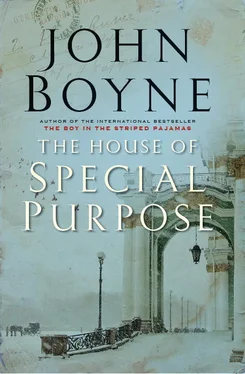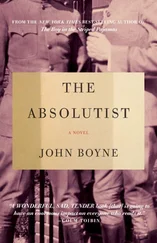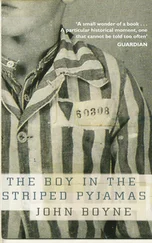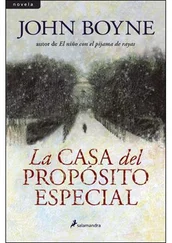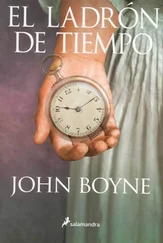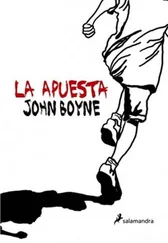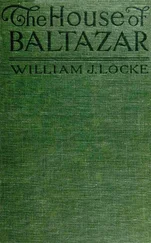John Boyne
THE HOUSE OF SPECIAL PURPOSE
For Mark Herman,
David Heyman
&
Rosie Alison,
with thanks
MY MOTHER AND FATHER did not have a happy marriage.
Years have passed since I last endured their company, decades, but they pass through my thoughts almost every day for a few moments, no longer than that. A whisper of memory, as light as Zoya’s breath upon my neck as she sleeps by my side at night. As gentle as her lips against my cheek when she kisses me in the first light of morning. I cannot say when they died exactly. I know nothing of their passing other than the natural certainty that they are no longer of this world. But I think of them. I think of them still.
I have always imagined my father, Daniil Vladyavich, dying first. He was already in his early thirties by the time I was born and from what I can recall of him, he was never blessed with good health. I have memories of waking as an infant in our small timber-framed izba in Kashin, in the Grand Duchy of Muscovy, pressing my hands to my tiny ears to repel the sound of his mortality as he choked and coughed and spat his phlegm into the fire burning in our small stove. I think now that he may have had a problem with his lungs. Emphysema, perhaps. It’s difficult to know. There were no doctors to administer to him. No medicines. Nor did he bear his many illnesses with fortitude or grace. When he suffered, we suffered too.
His forehead extended in a grotesque fashion from his head, I remember that also. A great mass of misshapen membrane protruding with smaller distensions on either side of it, the skin stretched taut from hairline to the bridge of his nose, pulling his eyebrows north to give him an expression of permanent disquiet. My older sister, Liska, told me once that it was an accident of birth, an incompetent doctor taking hold of the cranium rather than the shoulders as he emerged into the world, pressing too hard on the soft, not yet solidified bone beneath. Or a lazy midwife, perhaps, careless with another woman’s child. His mother did not live to see the creature she had produced, the deformed baby with his misshapen skull. The experience of giving my father life cost my grandmother her own. This was not unusual then and rarely a cause for grief; it was seen as a balance of nature. Today, it would be unexpected and worthy of litigation. My grandfather took another woman soon after, of course, to rear his young.
When I was a boy, the other children in our village took fright when they saw my father walking along the road towards them, his eyes darting back and forth as he returned home from his farm labours, perhaps, or shaking his fist as he stepped out of a neighbour’s hut after another argument over roubles owed or insults perceived. They had names for him and it excited them to shout these in his direction – they called him Cerberus, after the three-headed hound of Hades, and mocked him by pulling off their kolpak s and pressing their wrists to their foreheads, flapping them maniacally while chanting their war cries. They feared no retribution for behaving like this in front of me, his only son. I was small then and weak. They were not afraid of me. They pulled faces behind his back and spat on the ground in imitation of his habits, and when he turned to cry out like a wounded animal they would scatter, like grain seeds tossed across a field, disappearing into the landscape just as easily. They laughed at him; they thought him terrifying, monstrous and abhorrent all at once.
Unlike them, I was afraid of my father, for he was liberal with his fists and unrepentant of his violence.
I have no reason to imagine it so, but I picture him returning home some evening shortly after I made my escape from the railway carriage in Pskov on that cold March morning and being set upon by Bolsheviks in retaliation for what I had done. I see myself rushing across the tracks and disappearing into the forest beyond in fear of my life, while he shuffles along the road for home, coughing, hacking and spitting, unaware that his own is in mortal danger. In my arrogance, I imagine that my disappearance brought great shame upon my family and our small hamlet, a dishonour that demanded retribution. I picture a crowd of young men from the village – in my dreams there are four of them; they are big and ugly and brutal – bearing down upon him with cudgels, dragging him from the street towards the darkness of a high-walled lane in order to murder him without witness. I do not hear him crying out for mercy, that would not have been his way. I see blood on the stones where he lies. I glimpse a hand moving slowly, trembling, the fingers in spasm. And then lying still.
When I think of my mother, Yulia Vladimirovna, I imagine her being called home to God in her own bed a few years later, hungry, exhausted, with my sisters keening by her side. I cannot imagine what hardships she must have faced after my father’s death and I do not like to think of it, for despite the fact that she was a cold woman and betrayed her disappointment in me at every juncture of my childhood, she was my mother nevertheless and such a person is holy. I picture my eldest sister, Asya, placing a small portrait of me in her hands as she clasps them together for the final time in prayer, preparing in solemn penitence to meet her maker. The shroud is gathered to her thin neck, her face is white, her lips a pale shade of periwinkle blue. Asya loved me but envied my escape, I remember that too. She came to find me once and I turned her away. It shames me now to think of this.
None of this may have happened, of course. The lives of my mother, my father and my sisters may have ended differently: happily, tragically, together, apart, in peace, in violence, there is no way for me to know. There was never a moment when I could have returned, never a chance that I could have written to Asya or Liska or even Talya, who might not have remembered her older brother, Georgy, her family’s hero and shame. To return to them would have put them in danger, put me in danger, put Zoya in danger.
But no matter how many years have passed, I think of them still. There are great stretches of my life that are a mystery to me, decades of work and family, struggle, betrayal, loss and disappointment that have blended together and are almost impossible to separate, but moments from those years, those early years, linger and resonate in my memory. And if they remain as shadows along the dark corridors of my ageing mind, then they are all the more vivid and remarkable for the fact that they can never be forgotten. Even if, soon, I shall be.
It has been more than sixty years since I last laid eyes on any member of my blood family. It’s almost impossible to believe that I have lived to this age, eighty-two, and spent such a small proportion of my given time among them. I was remiss in my duties towards them, although I did not see it like that at the time. For I could no more have changed my destiny than altered the colour of my eyes. Circumstances led me from one moment to the next, and the next, and the next, as it does with any man, and I followed each step without question.
And then one day I stopped. And I was old. And they were gone.
Do their bodies remain in a state of decomposition, I wonder, or have they already dissolved and become one with the dust? Does the act of putrefaction take several generations to complete or can it advance at a faster rate, dependent on the age of the body or the conditions of burial? And the speed of corporeal decay, does that depend on the quality of the wood from which one’s coffin is made? The appetite of the soil? The climate? In the past, these are the types of questions that I might have pondered over while distracted from my night-time reading. Typically, I would have made a note of my query and researched it until a satisfactory answer had been arrived at, but my routines have all fallen apart this year and such investigations seem trivial to me now. Indeed, I have not been to the library for many months, not since before Zoya became ill. I may never go there again.
Читать дальше
